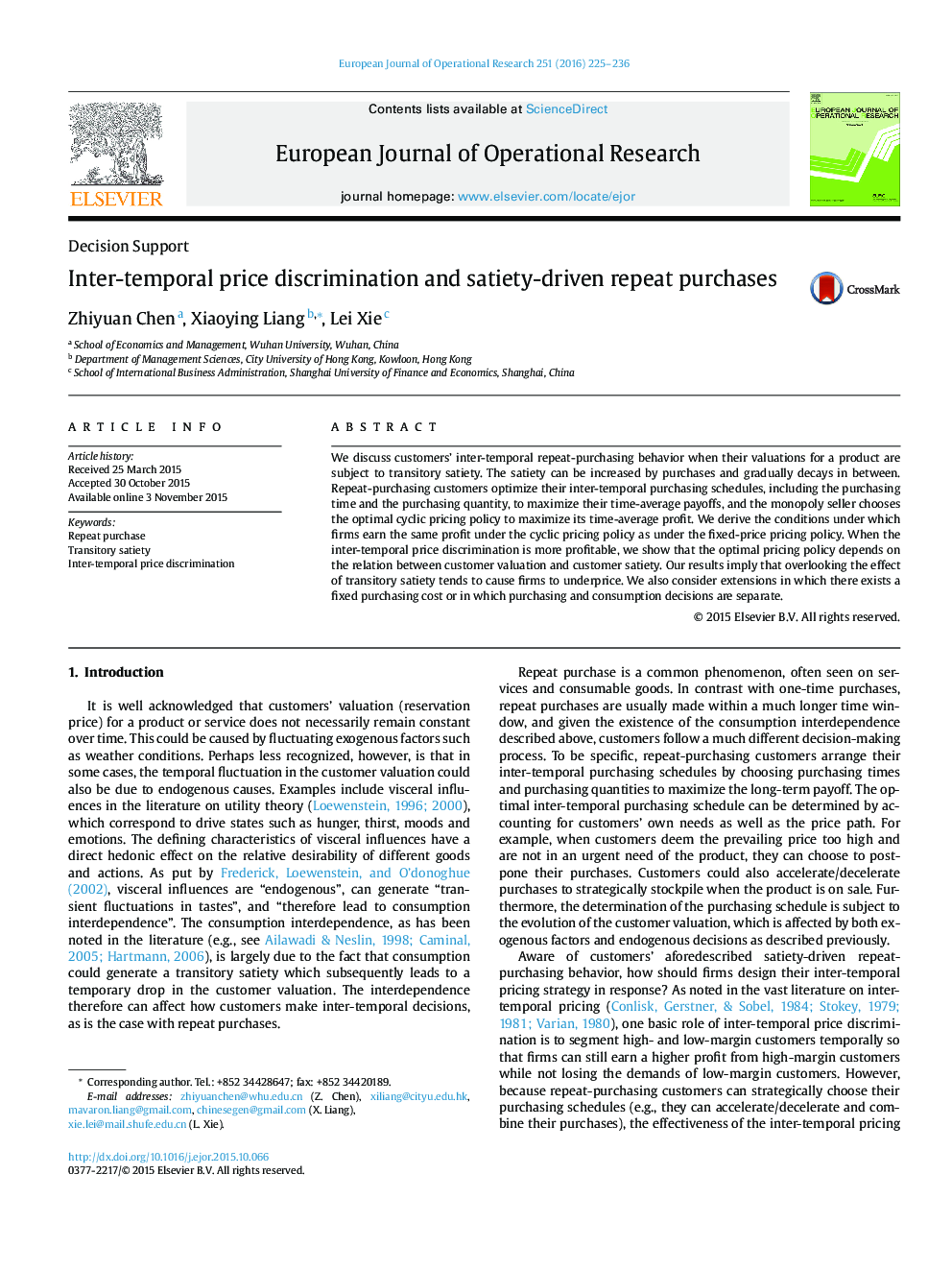| Article ID | Journal | Published Year | Pages | File Type |
|---|---|---|---|---|
| 480643 | European Journal of Operational Research | 2016 | 12 Pages |
•We examine customers’ repeat-purchasing behavior driven by transitory satiety.•We characterize the monopoly seller's optimal cyclic pricing policy.•We reveal the contingency of the optimal pricing policy on the satiety dynamics.
We discuss customers’ inter-temporal repeat-purchasing behavior when their valuations for a product are subject to transitory satiety. The satiety can be increased by purchases and gradually decays in between. Repeat-purchasing customers optimize their inter-temporal purchasing schedules, including the purchasing time and the purchasing quantity, to maximize their time-average payoffs, and the monopoly seller chooses the optimal cyclic pricing policy to maximize its time-average profit. We derive the conditions under which firms earn the same profit under the cyclic pricing policy as under the fixed-price pricing policy. When the inter-temporal price discrimination is more profitable, we show that the optimal pricing policy depends on the relation between customer valuation and customer satiety. Our results imply that overlooking the effect of transitory satiety tends to cause firms to underprice. We also consider extensions in which there exists a fixed purchasing cost or in which purchasing and consumption decisions are separate.
